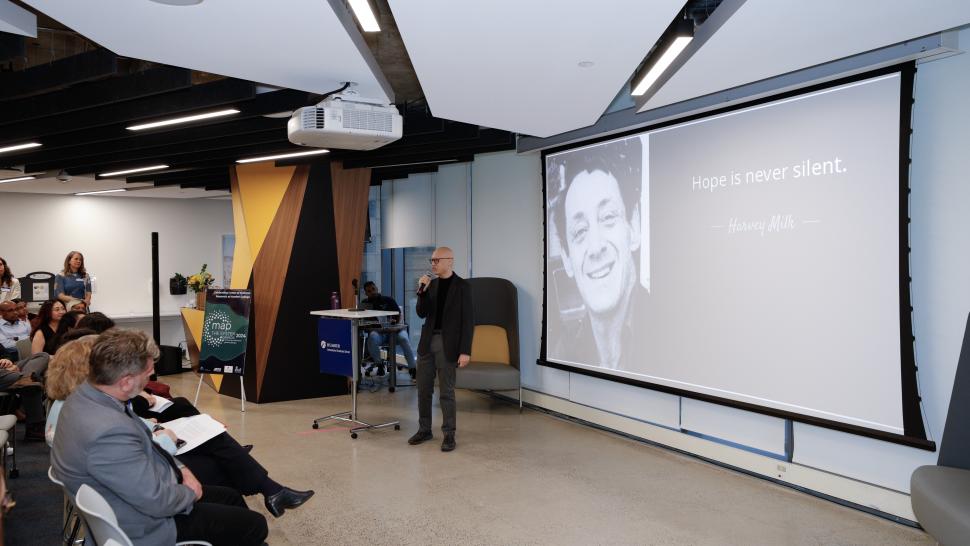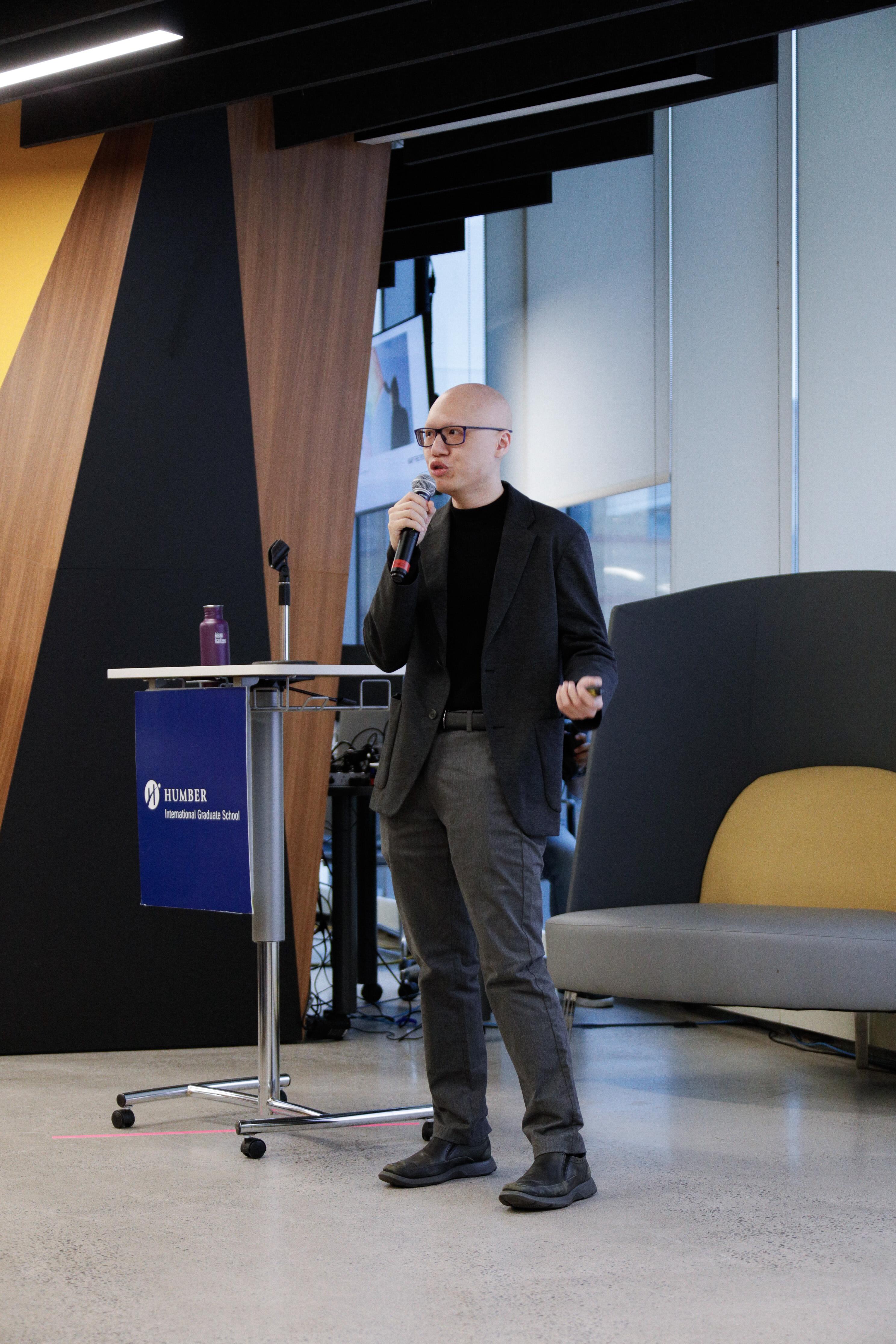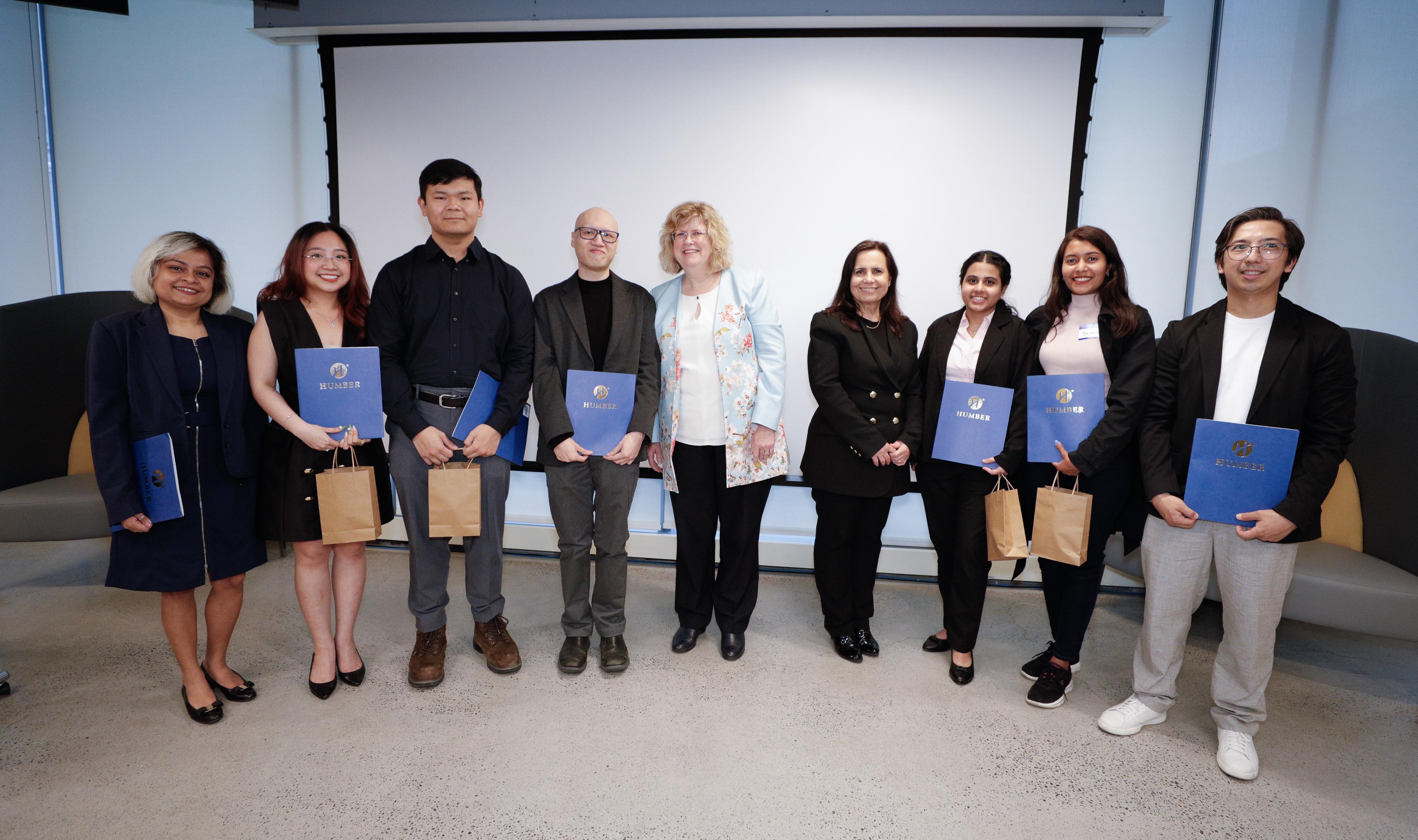
Humber student Chandra (Nat) Limiarja went from being a first-time participant in the Map the System challenge to a national champion in short order.
Earlier in May, Limiarja won first place in Humber’s Map the System competition for the presentation Breaking the Cycle of Hate: A Systems Analysis of Anti-LGBTQ Sentiment in Indonesia. Later that month, the Research Analyst student finished first at Map the System Canada.
“It feels unbelievable because I’ve never really won anything in my life and now all this,” said Limiarja. “When I heard them call Humber my jaw dropped. I still can’t believe it. It’s such a good feeling to see all that hard work being acknowledged.”

With the national win, Limiarja will receive a $4,000 prize along with up to $10,000 to work on a research project based on the research he conducted for Map the System .
Map the System is a global competition run by Oxford University that tasks students with addressing global issues by first studying them to gain a deeper understanding of the problem, its broader context and how it connects to other problems, which is a process known as systems thinking.
Elinor Bray-Collins, a politics professor with the Faculty of Liberal Arts & Sciences, said systems thinking calls for a deep dive into complex issues. The idea is to understand what drives them before attempting to intervene so that the proposed solutions are successful and don't backfire and create more problems.
Limiarja, who’s originally from Indonesia and is gay, said this was his first opportunity to conduct research in areas that touched on mental health and the LGBTQ+ community. He hopes to make a social impact in his future career and had his eyes further opened to the possibility through his participation in Map the System.
Limiarja said, in Indonesia, there’s anti-LGBTQ sentiments and campaigns being pushed by the government with other stakeholders – including the media, religious groups and the public – feeding into it and essentially normalizing it in the country.
He said, although being part of the LGBTQ+ community isn’t illegal, there are laws already on the books that are being used to implicitly criminalize them. More laws keep being added that are used against the LGBTQ+ community, he said.
Through his research, Limiarja found many examples of the hatred and violence the LGBTQ+ community in Indonesia, and particularly the trans community, is experiencing. It resonated deeply with him.
“It really hurt me when I was doing the research and I didn't expect it to impact me so strongly,” said Limiarja. “But it really pushed me to focus on what I can do because I want to help and create change.”
He initially thought that this was an issue that didn’t resonate with Indonesians. However, he found there are many activists lobbying politicians for change and grassroots organizations providing support.
Limiarja’s proposed solution is increased advocacy and support for activists working to have the country’s legal code revised.

In Humber’s Map the System, Mai Lan Quyen and Lawrence Lynn finished in second for Single-use plastics and the ‘Single-use Plastics Prohibition Regulations’ in Canada. Sivana D’Costa, Maria Saulenco and Marketa Danisova finished third for The Epidemic of Loneliness Among Seniors in Canada. Sayani Manna, Keerthi Shravani Naveenkumar and Angelo Mark Lesaca received the Excellence in Systems Research Award for Waste Colonialism: The Socioeconomic Impact of Secondhand Clothing in India.